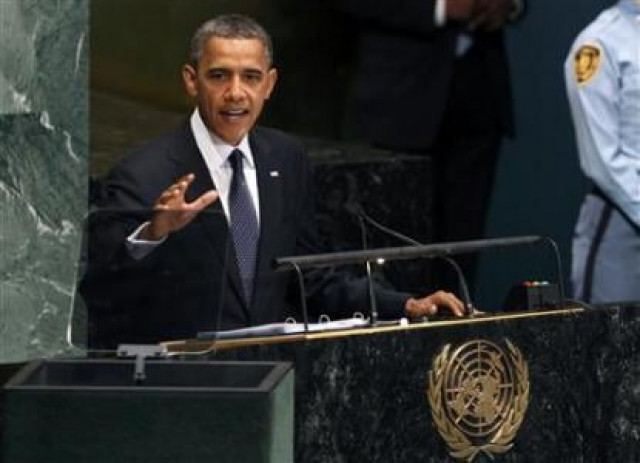Re-elected Obama and Pakistan
Pakistan cannot fight the terrorists, to whom it is steadily losing more and more cities, without international help.

The military is now pragmatic and handles the relationship as transactional, which in Pakistan’s lexicon is an unworthy way of relating between two parties. It wants the US to understand that in any endgame scenario in Afghanistan, it would be a folly to ignore Pakistan’s interest. This kind of approach is not necessarily a promising way of looking at the future of Pakistan-US relations because of the element of dare contained in it. A more realistic formulation would have been better suited to the one adopted now: Pakistan has some strong cards in its capacity to spoil the endgame unless it is allowed a significant share in the power map of post-withdrawal Afghanistan. Needless to say, the US and its allies were not happy about the cards played by Pakistan even when the Taliban ruled Afghanistan.
Analysts say that the US will play tough this time around, using drones more effectively and retaining some special force in Afghanistan to prevent a repeat of 1998, when the Northern Alliance was annihilated by the Taliban and al Qaeda was given a free hand in planning a terrorist assault on the US. Some say that since, after the withdrawal, the US will need Pakistan less than Pakistan will need the US, this toughness will be a realistic policy orientation. No doubt, Pakistan will need US help when it comes to rescuing its economy from its nosedive pattern under the savage treatment meted out to it by the Taliban and their affiliated groups. Multilateral institutions that lend to Pakistan for its development projects and balance of payments will act only after receiving approval from the US and its allies. And Pakistan has to pay back the old loans with interest, the total amounting to more than the dollars it has in the kitty.
Any realistic assessment of the situation in Pakistan will recommend cautious trimming of the intensity with which America is hated. An aggressive foreign policy on the part of the weak state, dogged by internal security problems, will be difficult to roll back. This happened repeatedly in 2011 and 2012, when Pakistan tried to punish America but had to retreat in each case of display of ‘honour’. Such action brings about the psychological syndrome of self-hatred. The Pakistani media is overloaded with this dangerous trend of hating the US while having to play ball with it. No one outside Pakistan advises it to do what it is doing, not even the Chinese, who normally stand by Pakistan. The slogan ‘it is not our war’ has hurt our interests in the region. It should not have been allowed to spread as a national expression, especially as the military realises that what it faces in Swat, Bajaur, Mohmand Agency, South and North Waziristan is very much Pakistan’s war.
Pakistan has to change its posture, just as it wants the US to change policy in favour of its interest. Its main weakness is a lack of control of the strategic assets that it plans to use as an instrument of its Afghan policy. Its internal weakness in the face of the Taliban — to whose thinking the country submits in many alarming ways — undermines its external posture. Pakistan, it is now clear, cannot fight the terrorists, to whom it is steadily losing more and more cities, without international help. It is time to realign Pakistan with the rest of the world, especially those states that are critical to the survival of its economy.
Published in The Express Tribune, November 11th, 2012.














COMMENTS
Comments are moderated and generally will be posted if they are on-topic and not abusive.
For more information, please see our Comments FAQ